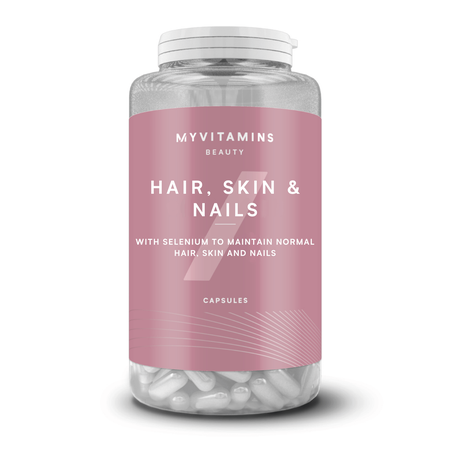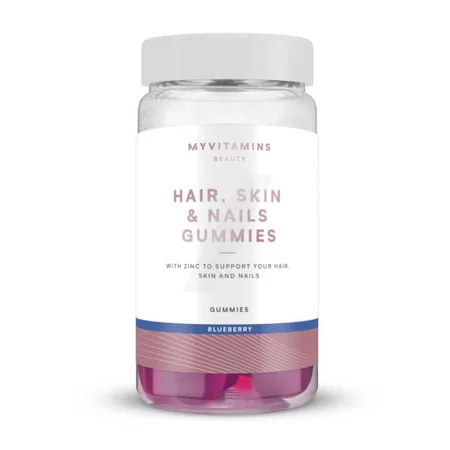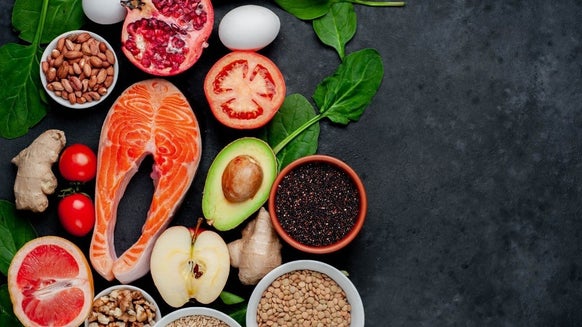The Importance Of Gut Health
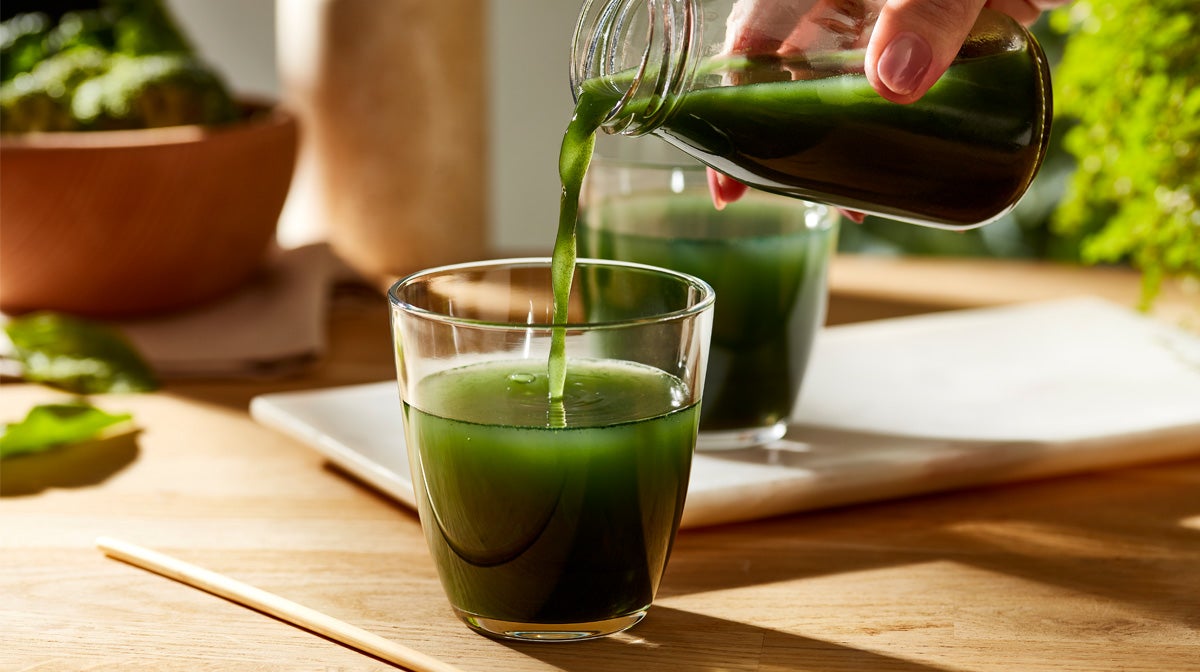
Your gut is the body's highway for nutrient absorption. When it’s out of balance, vital nutrients don’t get where they need to go.
Looking after your gut means your body gets the fuel it needs to function properly, and you get a boost for your overall health. It’s a win-win.
- The role of gut health in overall wellbeing
- Digestive function: how the gut breaks down food
- The importance of gut health for nutrient absorption
- Gut health and energy levels
- How gut health affects athletic performance
- Digestive issues and their impact on performance
- Nutrition and gut health: foods that support a healthy gut
- Fermented foods and their role in gut health
- Sleep and gut health: the sleep-gut connection
- Exercise and gut health: the benefits of physical activity
- Gut health for athletes: optimising performance
- Gut health and recovery: supporting muscle repair
- Healthy gut, healthy skin: the gut-skin connection
- Signs of poor gut health: symptoms to watch for
- Improving gut health: lifestyle changes and strategies
The role of gut health in overall wellbeing
The gut doesn’t just process food but acts as a command centre for overall health. It's home to trillions of bacteria known as the microbiome, which perform essential tasks such as breaking down food compounds and producing vitamins.1
Emerging research also suggests there is a strong connection between gut health and mental wellbeing, with the gut-brain axis helping to regulate mood.2
Digestive function: how the gut breaks down food
Digestion is an incredible feat of engineering. The process begins in the mouth, where chewing and saliva start breaking down carbohydrates. Next, food enters the stomach, where gastric juices get to work.
In the small intestine, fats, proteins and carbohydrates are broken down into amino acids, fatty acids and simple sugars to be absorbed into the body. Finally, waste passes through the large intestine, where water is reabsorbed and gut bacteria ferment indigestible fibre.3
The importance of gut health for nutrient absorption
Good gut health is essential for making sure we get as many nutrients as possible from the food we eat. In the small intestine, there are microscopic, finger-like projections called villi that help absorb nutrients and water. Some autoimmune diseases that attack the digestive system can damage these villi, making them less effective.
Research shows that gut microbiota also plays a pivotal role in the absorption of nutrients, supporting the intestinal barrier and breaking down indigestible fibres to unlock otherwise unavailable nutrients.4,5
Gut health and energy levels
The gut may not be the first thing that comes to mind when thinking about energy, but there is a link.
Gut microbiotas produce signalling molecules that influence energy levels, while helping to break down complex carbohydrates, providing an added source of energy.6,7
An inflamed gut can hinder the absorption of essential nutrients needed to produce energy. This isn’t ideal for mitochondria, the cell’s powerhouses, which need a steady supply of nutrients to generate energy. To make matters worse, an inflamed gut demands more energy, often leading to fatigue.
Research has shown that individuals with chronic fatigue syndrome often have less diverse gut microbiomes, suggesting there is a link between gut health and energy levels.8 So, next time you’re feeling drained, consider giving your gut some love.

How gut health affects athletic performance
For athletes, good gut health is important for performance. Studies show that fitter individuals tend to have more diverse gut bacteria than their less fit counterparts.9/10 A review of the research showed that athletes typically show higher levels of beneficial gut bacteria and a more diverse microbiome.10
But does exercise help to support a “healthy” gut microbiome or does the gut microbiome support high performance? Well, it seems to go both ways. Endurance exercise programmes have been shown to enhance microbiome diversity in just six weeks, while specific gut bacteria in mice have been linked to improved exercise capacity.11,12
Although the exact reasons why are unclear, experts believe a balanced gut microbiome may boost energy availability and improve nutrient absorption, supporting athletic performance. A healthy gut is also good news for the immune system, helping to lower the risk of illness that could disrupt training or competition.13
Digestive issues and their impact on performance
Digestive issues can seriously hamper athletic performance. During exercise, the body prioritises sending blood to the muscles, heart and lungs, leaving less for the gut.14 This can lead to typical symptoms of digestive discomfort (like stomach cramps, diarrhoea, nausea and bloating), which can have obvious consequences on performance.
One study found that 96% of ultramarathon runners experienced gut problems during races, leaving more than a third unable to finish.15 The ability to absorb nutrients like carbohydrates is crucial for staying strong and competitive, so it’s a good idea to keep your gut happy if you are embarking on a long run.

Nutrition and gut health: foods that support a healthy gut
Fermented foods: Yoghurt, kefir and kimchi can all increase the diversity and number of gut bacteria.16 - Fibre: Fruits, vegetables, whole grains and legumes provide prebiotics that are good for microbes.
Healthy fats: Nuts and fatty fish, both rich in omega-3s, support gut health.17 - Varied diet: A healthy microbiome loves variety, so try at least 30 different plant foods every week while limiting processed foods high in sugar and refined carbohydrates.
Fermented foods and their role in gut health
Fermented foods are made through a process where natural sugars are broken down by bacteria and yeast. Many fermented foods contain live bacteria that can promote the diversity and abundance of the gut microbiome.
However, not all fermented foods contain probiotics, so choose wisely. These probiotics do not live in the gut forever, so include them in your diet long-term to receive their full benefits.18
Sleep and gut health: the sleep-gut connection
Irregular sleep patterns can disrupt the balance of bacteria in the gut microbiome.19 A diverse gut microbiome plays a role in producing neurotransmitters like melatonin and serotonin, crucial to helping you get to sleep at bedtime.20
Greater microbiome diversity is associated with improved sleep efficiency and duration. For better gut health, try to go to bed at the same time every night and create a comfortable sleep environment and get into the practice of performing relaxation techniques beforehand.
Exercise and gut health: the benefits of physical activity
Regular exercise supports gut health by enhancing microbial diversity and the growth of beneficial bacteria.21 It also promotes gut motility by increasing blood flow and stimulating intestinal contractions, preventing bloating and discomfort. Moderate to high-intensity exercise sessions lasting 30-90 minutes, three times a week for at least eight weeks, can have a positive effect on the gut microbiota.22

Gut health for athletes: optimising performance
Eat more fibre: Gut microbes break down fibre to create short-chain fatty acids, optimising performance.
Eat fermented foods: Fermented foods or probiotics help maintain gut microbiome balance.
Minimise sugar, saturated fat and salt: A diet high in these reduces microbial diversity, which can affect performance.
Focus on recovery: Adequate recovery helps ease stress and inflammation.
Gut health and recovery: supporting muscle repair
A healthy gut is crucial for muscle repair after exercise. It ensures the best absorption of nutrients needed for rebuilding and strengthening muscles. Gut bacteria produce short-chain fatty acids and other anti-inflammatory metabolites, helping to reduce muscle soreness and speed up recovery.
Emerging research suggests the gut microbiome might also boost T cell production, boosting muscle repair.23
Healthy gut, healthy skin: the gut-skin connection
Gut and skin health are more connected than you might think. Imbalances in gut bacteria can trigger inflammation or affect the immune response, negatively affecting skin health and potentially leading to outbreaks like eczema.24
Research on the gut-skin axis suggests that gut health may influence skin conditions and vice versa.25
Signs of poor gut health: symptoms to watch for
Common signs of an upset stomach, like bloating, gas, constipation and diarrhoea, might indicate gut motility issues or an imbalance in gut bacteria. Brain fog and mood swings may also be warning signs, as the gut-brain axis may influence mental health.26
Other symptoms like skin rashes, sleep issues and autoimmune problems may also be linked to gut health. If you notice any worrying changes, speak to a healthcare professional.
Improving gut health: lifestyle changes and strategies
Eat a varied diet: Follow a diet rich in fibre, fruits, vegetables and fermented foods.
Manage stress: Give mindfulness practices like meditation, yoga or deep breathing a go.
Get good sleep: Quality sleep is crucial for gut health.
Stay active: Regular exercise helps keep bowels working and contributes to a diverse microbiome.
Use antibiotics sparingly: Only take them when absolutely needed and under doctor’s orders to avoid disrupting the careful balance of gut microbiota.
Include supplements: Gut Gummies and Inulin Powder can boost your microbe community. Consult a healthcare professional for the best options.
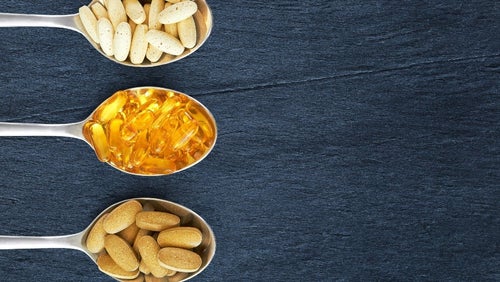
The 4 Best Supplements For Gut Health
Supplements to aid immunity, performance and microbiome balance.
Take home message
Prioritising your gut health is not just about good digestion. A healthy gut also supports your immune system, ability to absorb nutrients, and mood and energy levels. So follow a diet rich in fibre and probiotics while managing your stress and focusing on good sleep, and your microbiome should thrive.
FIND MORE HERE:

Myprotein's Best Whey Protein Flavours According To You
If you’ve ever found yourself in a protein-picking dilemma, a good place to start is what’s the most popular.
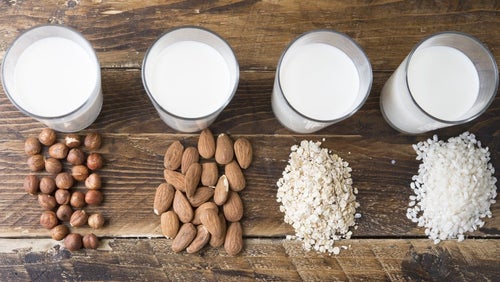
8 Best Plant-Based Milks
Nutritionist compares protein, carb and fat content of the most talked-about plant-based milks.

- Rowland, I. et al. (2018) Gut microbiota functions: Metabolism of nutrients and other food components, European journal of nutrition. Available at: https://www.ncbi.nlm.nih.gov/pmc/articles/PMC5847071/#:~:text=The%20gut%20microbiota%20makes%20an,polyphenols%20and%20synthesis%20of%20vitamins (Accessed: 26 June 2024).
- Xiong, R.-G. et al. (2023) The role of gut microbiota in anxiety, depression, and other mental disorders as well as the protective effects of dietary components, Nutrients. Available at: https://www.ncbi.nlm.nih.gov/pmc/articles/PMC10384867/ (Accessed: 26 June 2024).
- Patricia, J.J. (2022) Physiology, digestion, StatPearls [Internet]. Available at: https://www.ncbi.nlm.nih.gov/books/NBK544242/#:~:text=After%20passage%20through%20the%20esophagus,the%20contracted%20pylorus%2C%20termed%20propulsion (Accessed: 26 June 2024).
- Gou, H.-Z. et al. (2022) How do intestinal probiotics restore the intestinal barrier?, Frontiers in microbiology. Available at: https://www.ncbi.nlm.nih.gov/pmc/articles/PMC9330398/#:~:text=Probiotics%20improve%20intestinal%20barrier%20function,and%20secretion%20of%20intestinal%20mucus (Accessed: 26 June 2024).
- Takiishi, T., Fenero, C.I.M. and Câmara, N.O.S. (2017) Intestinal barrier and gut microbiota: Shaping our immune responses throughout life, Tissue barriers. Available at: https://www.ncbi.nlm.nih.gov/pmc/articles/PMC5788425/ (Accessed: 26 June 2024).
- Heiss, C.N. and Olofsson, L.E. (2017) Gut microbiota-dependent modulation of energy metabolism, Karger Publishers. Available at: https://karger.com/jin/article/10/3/163/179709/Gut-Microbiota-Dependent-Modulation-of-Energy (Accessed: 26 June 2024).
- Krajmalnik-Brown, R. et al. (2012) Effects of gut microbes on nutrient absorption and energy regulation, Nutrition in clinical practice : official publication of the American Society for Parenteral and Enteral Nutrition. Available at: https://www.ncbi.nlm.nih.gov/pmc/articles/PMC3601187/ (Accessed: 26 June 2024).
- Giloteaux, L. et al. (2016) Reduced diversity and altered composition of the gut microbiome in individuals with myalgic encephalomyelitis/chronic fatigue syndrome – microbiome, BioMed Central. Available at: https://microbiomejournal.biomedcentral.com/articles/10.1186/s40168-016-0171-4 (Accessed: 26 June 2024).
- Estaki, M. et al. (2016) Cardiorespiratory fitness as a predictor of intestinal microbial diversity and distinct metagenomic functions – microbiome, BioMed Central. Available at: https://microbiomejournal.biomedcentral.com/articles/10.1186/s40168-016-0189-7 (Accessed: 26 June 2024).
- Mohr, A.E. et al. (2020) The athletic Gut Microbiota – Journal of the International Society of Sports Nutrition, BioMed Central. Available at: https://jissn.biomedcentral.com/articles/10.1186/s12970-020-00353-w (Accessed: 26 June 2024).
- Allen JM;Mailing LJ;Niemiro GM;Moore R;Cook MD;White BA;Holscher HD;Woods JA; (no date) Exercise alters gut microbiota composition and function in lean and obese humans, Medicine and science in sports and exercise. Available at: https://pubmed.ncbi.nlm.nih.gov/29166320/ (Accessed: 26 June 2024).
- Hsu, Y. J., Chiu, C. C., Li, Y. P., Huang, W. C., Huang, Y. T., Huang, C. C., & Chuang, H. L. (2015). Effect of intestinal microbiota on exercise performance in mice. Journal of strength and conditioning research, 29(2), 552–558. https://doi.org/10.1519/JSC.0000000000000644
- Mach, N., & Fuster-Botella, D. (2017). Endurance exercise and gut microbiota: A review. Journal of sport and health science, 6(2), 179–197. https://doi.org/10.1016/j.jshs.2016.05.001
- Peters, H.P. et al. (2001) Potential benefits and hazards of physical activity and exercise on the gastrointestinal tract, Gut. Available at: https://www.ncbi.nlm.nih.gov/pmc/articles/PMC1760153/#:~:text=In%20particular%2C%20acute%20strenuous%20exercise,in%20training%20and%20competitive%20events (Accessed: 26 June 2024).
- O’Brien, M.T. et al. (2022) The Athlete Gut Microbiome and its relevance to health and performance: A Review, Sports medicine (Auckland, N.Z.). Available at: https://www.ncbi.nlm.nih.gov/pmc/articles/PMC9734205/#:~:text=In%20one%20study%2C%2096%25%20of,to%20these%20symptoms%20%5B16%5D (Accessed: 26 June 2024).
- Zhang, Y.-J. et al. (2015) Impacts of gut bacteria on human health and diseases, International journal of molecular sciences. Available at: https://www.ncbi.nlm.nih.gov/pmc/articles/PMC4425030/ (Accessed: 26 June 2024).
- Fu, Y., Wang, Y., Gao, H., Li, D., Jiang, R., Ge, L., Tong, C. and Xu, K. (2021). Associations among Dietary Omega-3 Polyunsaturated Fatty Acids, the Gut Microbiota, and Intestinal Immunity. Mediators of Inflammation, [online] 2021, pp.1–11. doi:https://doi.org/10.1155/2021/8879227.
- Leeuwendaal, N.K., Stanton, C., O’Toole, P.W. and Beresford, T.P. (2022). Fermented Foods, Health and the Gut Microbiome. Nutrients, [online] 14(7), p.1527. Available at: https://pubmed.ncbi.nlm.nih.gov/35406140/.
- Bermingham, K.M., Stensrud, S., Asnicar, F., Valdes, A.M., Franks, P.W., Wolf, J., Hadjigeorgiou, G., Davies, R., Spector, T.D., Segata, N., Berry, S.E. and Hall, W.L. (2023). Exploring the relationship between social jetlag with gut microbial composition, diet and cardiometabolic health, in the ZOE PREDICT 1 cohort. European Journal of Nutrition. [online] doi:https://doi.org/10.1007/s00394-023-03204-x.
- Iesanu, M.I., Zahiu, C.D.M., Dogaru, I.-A., Chitimus, D.M., Pircalabioru, G.G., Voiculescu, S.E., Isac, S., Galos, F., Pavel, B., O’Mahony, S.M. and Zagrean, A.-M. (2022). Melatonin–Microbiome two-sided interaction in dysbiosis-associated conditions. Antioxidants, [online] 11(11), p.2244. doi:https://doi.org/10.3390/antiox11112244.
- Monda, V., Villano, I., Messina, A., Valenzano, A., Esposito, T., Moscatelli, F., Viggiano, A., Cibelli, G., Chieffi, S., Monda, M. and Messina, G. (2017). Exercise modifies the gut microbiota with positive health effects. Oxidative Medicine and Cellular Longevity, [online] 2017, pp.1–8. doi:https://doi.org/10.1155/2017/3831972.
- Boytar, A.N., Skinner, T.L., Wallen, R.E., Jenkins, D.G. and Dekker Nitert, M. (2023). The Effect of Exercise Prescription on the Human Gut Microbiota and Comparison between Clinical and Apparently Healthy Populations: A Systematic Review. Nutrients, 15(6), p.1534. doi:https://doi.org/10.3390/nu15061534.
- Hanna, B.S., Wang, G., Galván-Peña, S., Mann, A.O., Ramirez, R.N., Muñoz-Rojas, A.R., Smith, K., Wan, M., Benoist, C. and Mathis, D. (2023). The gut microbiota promotes distal tissue regeneration via RORγ+ regulatory T cell emissaries. Immunity, [online] 0(0). doi: https://doi.org/10.1016/j.immuni.2023.01.033.
- Mahmud, Md.R., Akter, S., Tamanna, S.K., Mazumder, L., Esti, I.Z., Banerjee, S., Akter, S., Hasan, Md.R., Acharjee, M., Hossain, Md.S. and Pirttilä, A.M. (2022). Impact of gut microbiome on skin health: gut-skin axis observed through the lenses of therapeutics and skin diseases. Gut Microbes, 14(1). doi:https://doi.org/10.1080/19490976.2022.2096995.
- De Pessemier, B., Grine, L., Debaere, M., Maes, A., Paetzold, B. and Callewaert, C. (2021). Gut–Skin Axis: Current Knowledge of the Interrelationship between Microbial Dysbiosis and Skin Conditions. Microorganisms, 9(2).
- Appleton, J. (2018). The Gut-Brain Axis: Influence of Microbiota on Mood and Mental Health. Integrative Medicine: A Clinician’s Journal, [online] 17(4), pp.28–32. Available at: https://www.ncbi.nlm.nih.gov/pmc/articles/PMC6469458/.




